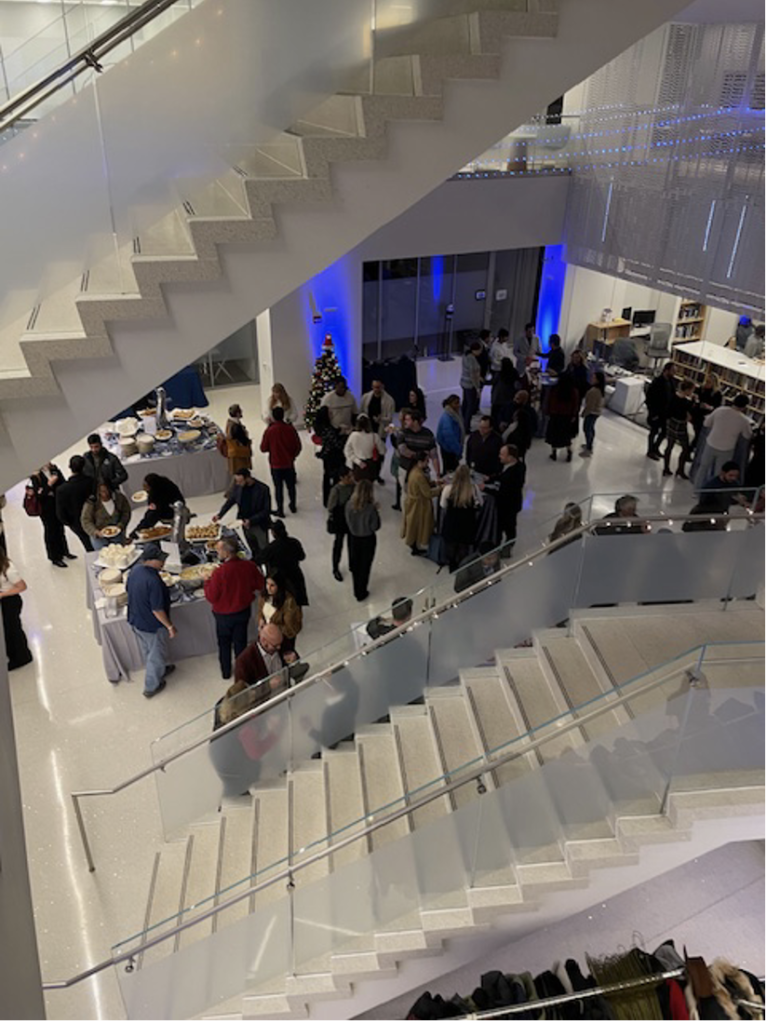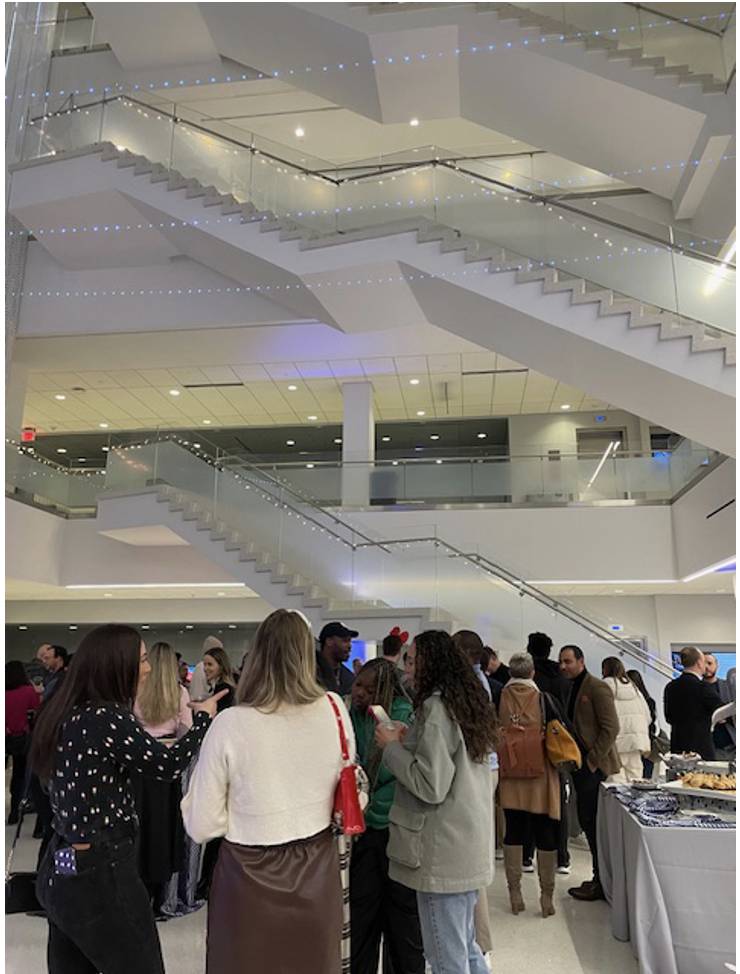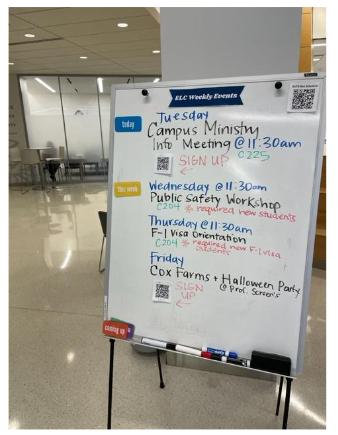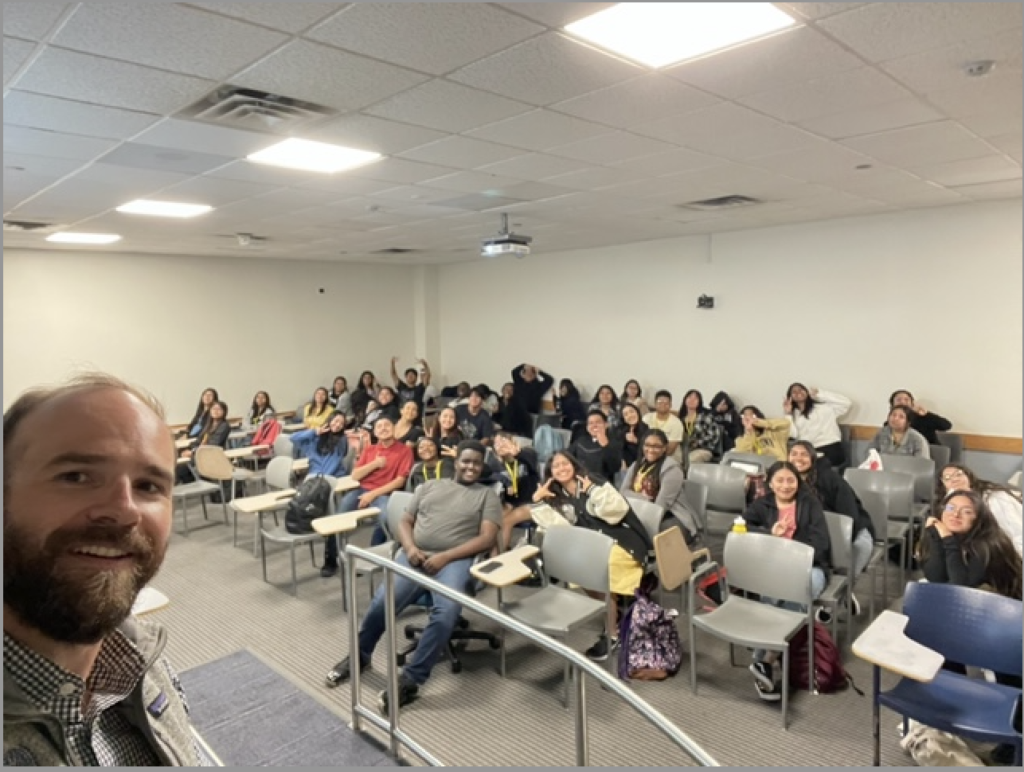Four years ago, in the week that global lockdowns began in response to the COVID-19 pandemic, SCS started offering a 15-minute daily digital mediation over Zoom. The virtual practice, which you can sign up online , was never intended to be a permanent event, but a temporary resource to help ease some of the disquiet and anxiety that surrounded the early days of the pandemic.
Since March 2020, more than 350 people from across Georgetown have signed up to receive the link to participate. Throughout the four years, a remarkable community has formed through this contemplative convening. What is beautiful about the daily event is that there is no pressure to attend and who shows up on a daily basis is almost always a surprise. And even in silence a community has formed, with unspoken bonds of affection and solidarity created by the fact of simple presence in a virtual meeting room.
While each attendee brings their own invisible needs to the space, there is a shared understanding that all are seeking quiet, centering, stillness, self-awareness, and pause (among other things).
This week, I want to highlight the value of this resource that is “here to stay” and no longer considered a temporary event. Past posts from Mission in Motion have explored the meditations from different angles, include participant testimonials about their value:
- Curious About the SCS Daily Digital Meditations? Some Frequently Asked Questions
- The Value of Inner Silence: Participants Reflect on the Benefits of SCS Daily Digital Meditations
- Digitally Caring for the Whole Person at SCS in a Time of COVID-19
In recent weeks, Mission in Motion has touched upon the value of mindfulness and its relationship to professional practices and concern for the common good. For instance, Becoming Spiritually Grounded Strategic Thinkers and Discerning Leaders examined the relationship between effectively mediating conflicts and achieving organizational objectives. Good leaders need to be able to tap into their own inner life and sensory awareness in order to manage high-stakes disagreements occurring in a group.
In another post, SCS Retreat Invites Students Into Reflection on the Meaning and Practices of the Good Life, I emphasized the importance of taking “retreat” from one’s daily habits and obligations, even if for a single day (as is the case for the annual SCS student retreat). What so often emerges in these experiences is a recognition of how easy it is to forgo regular reflective practices in busy daily life, yet how important it is to reclaim this simple habit of an examen reflection or a “mental pit stop” as a way of staying true to one’s ultimate purpose and identity.
Most recently, An Ongoing Journey Toward More Belonging: Some Recent Efforts took a closer look at some Georgetown efforts to create a more inclusive community . Central to the task of building inclusive spaces is the cultivation of individual habits of growing in greater awareness of how one’s own blind spots get in the way of recognizing barriers to flourishing for all members of an organization. The positive contribution of mindfulness to this work of inclusion is affirmed by Rhonda Magee (the subject of this Mission in Motion post in 2020) in her piece, “How Mindfulness Can Defeat Racial Bias.”
What better time than now to treat yourself to the treasure of quiet mindful contemplation? Sign up today!
If you have any questions about the SCS Daily Digital Meditation, please reach out to me: Jamie Kralovec, SCS Associate Director for Mission Integration, at pjk34@georgetown.edu.




